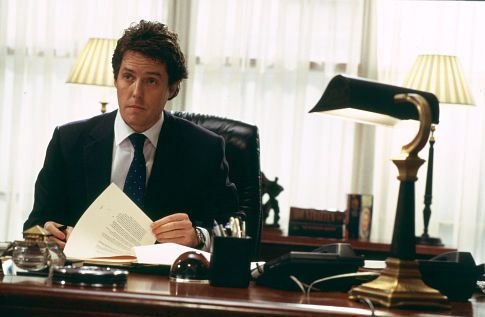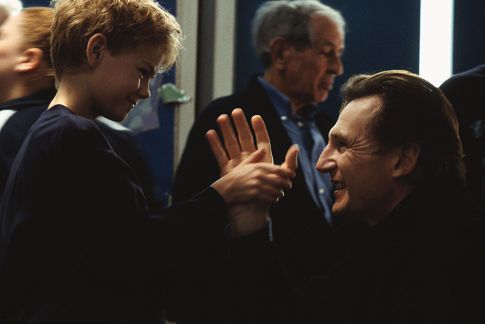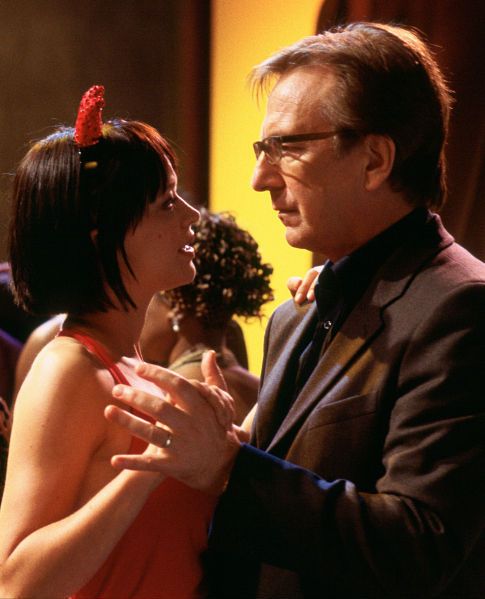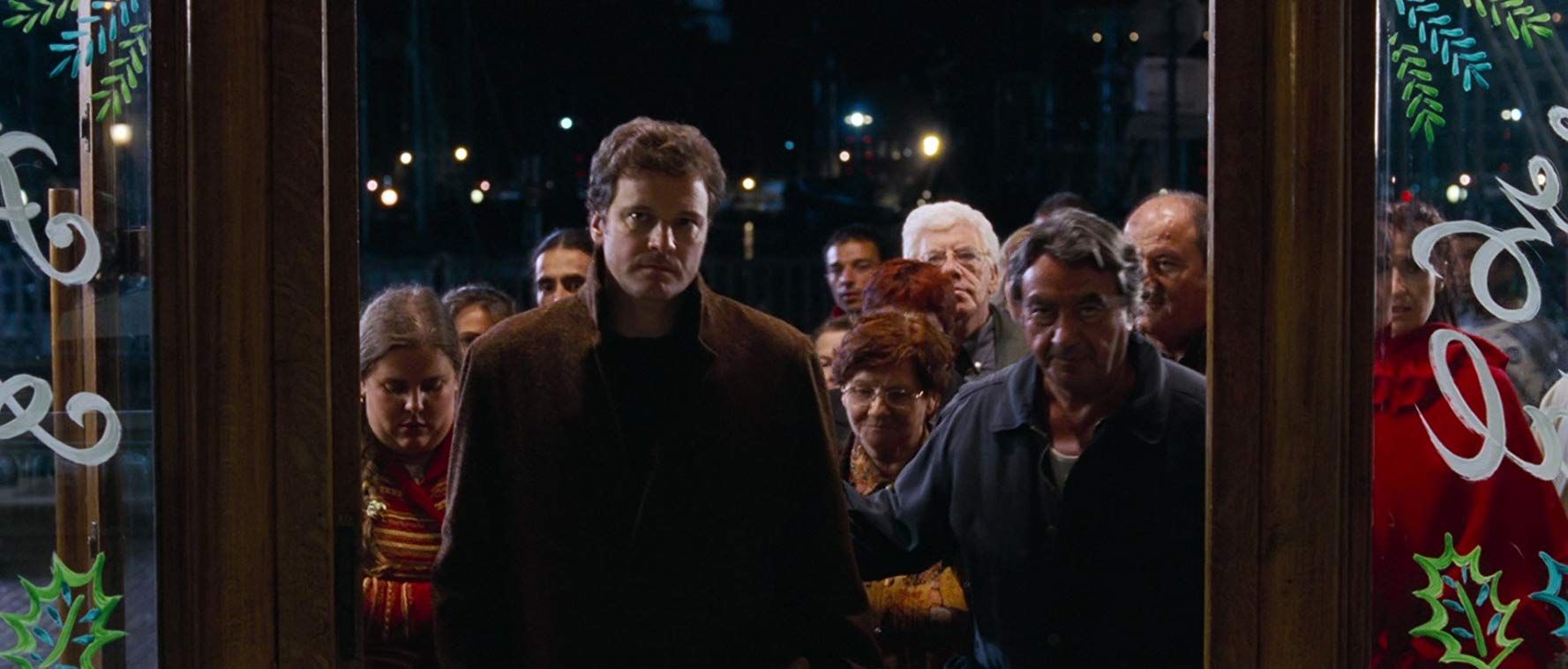

Share
22nd December 2019
12:00pm GMT

 Still, his message is fairly simple. He says that the world is ultimately full of love, that when faced with death and given the chance to send out a last message, most people choose to throw love out into the void. No matter if that love is between romantic partners, friends or family. Even when they know they will never have the chance to receive an answer, love is the last imprint they want to leave on the world.
When I was 33, I was diagnosed with stage four lymphoma. I was young for a cancer patient, and it was a shock. It was rather a nice surprise when two elderly ladies were talking sympathetically about the poor sweet young girl in chemotherapy. I was looking around with interest to see her, until I realised, I was her. I patted my wig, which was pink and purple, and beamed at the older lady beside me. She was called May, and she offered me some dark chocolate. I don’t like dark chocolate, but it was a sweet gesture, so I took it.
May told me about how she’d been in treatment for six years, and her husband brought her breakfast in bed every day, and her daughter would take her human-hair wig to the hairdresser’s without her. My father thought May was so kind, he brought in dark chocolate every time we came for treatment. May always thought it was for me.
In Love Actually, Liam Neeson’s wife is dead and he’s bringing up a son who was biologically hers and isn’t biologically his, and Liam Neeson encourages the kid to perform a musical number and woo his first love. It isn’t a story about the son’s teen romance, or Liam Neeson’s anaemic encounter with Claudia Schiffer. It’s about Liam Neeson’s love for his son, and the support and the choice that makes up a family.
Still, his message is fairly simple. He says that the world is ultimately full of love, that when faced with death and given the chance to send out a last message, most people choose to throw love out into the void. No matter if that love is between romantic partners, friends or family. Even when they know they will never have the chance to receive an answer, love is the last imprint they want to leave on the world.
When I was 33, I was diagnosed with stage four lymphoma. I was young for a cancer patient, and it was a shock. It was rather a nice surprise when two elderly ladies were talking sympathetically about the poor sweet young girl in chemotherapy. I was looking around with interest to see her, until I realised, I was her. I patted my wig, which was pink and purple, and beamed at the older lady beside me. She was called May, and she offered me some dark chocolate. I don’t like dark chocolate, but it was a sweet gesture, so I took it.
May told me about how she’d been in treatment for six years, and her husband brought her breakfast in bed every day, and her daughter would take her human-hair wig to the hairdresser’s without her. My father thought May was so kind, he brought in dark chocolate every time we came for treatment. May always thought it was for me.
In Love Actually, Liam Neeson’s wife is dead and he’s bringing up a son who was biologically hers and isn’t biologically his, and Liam Neeson encourages the kid to perform a musical number and woo his first love. It isn’t a story about the son’s teen romance, or Liam Neeson’s anaemic encounter with Claudia Schiffer. It’s about Liam Neeson’s love for his son, and the support and the choice that makes up a family.
 Since I was stage four, the doctors went fairly hardcore on my chemotherapy. I once asked playfully why May got to do chemo for half an hour, while I had to be hooked up for almost four hours. The doctors, not a playful bunch, replied: “Because what we’re giving you would kill May.” After a few chemotherapy sessions, I would constantly faint with no warning. One moment I’d be standing up, wearing a brightly coloured wig and talking, the next I’d hit the floor. Only I never did hit the floor, if my brother was in the room. That brother broke out an unexpected talent. He could always catch me. Even if he was on the other end of the room, his back to me, several items of furniture or items of humanity between us, he’d hurdle a sofa or dodge an aunt. He would always get to me, and he’d catch me.
Love Actually works, not because of seeing Emma Thompson weep over her faithless necklace-buying husband, but because we see her get up and pretend she’s fine so her kids will enjoy their school play. Because we know people make small, undignified sacrifices every day, for love.
Since I was stage four, the doctors went fairly hardcore on my chemotherapy. I once asked playfully why May got to do chemo for half an hour, while I had to be hooked up for almost four hours. The doctors, not a playful bunch, replied: “Because what we’re giving you would kill May.” After a few chemotherapy sessions, I would constantly faint with no warning. One moment I’d be standing up, wearing a brightly coloured wig and talking, the next I’d hit the floor. Only I never did hit the floor, if my brother was in the room. That brother broke out an unexpected talent. He could always catch me. Even if he was on the other end of the room, his back to me, several items of furniture or items of humanity between us, he’d hurdle a sofa or dodge an aunt. He would always get to me, and he’d catch me.
Love Actually works, not because of seeing Emma Thompson weep over her faithless necklace-buying husband, but because we see her get up and pretend she’s fine so her kids will enjoy their school play. Because we know people make small, undignified sacrifices every day, for love.
 The holidays are a time when we buy and receive presents, travel to visit loved ones or realise we can’t be with them this year. For some, it can be a difficult or a lonely time, for many it’s a time in which we have to make compromises as well as sacrifices for love. When I was sick, my brother would bring me wheatgerm because he loved me and wanted me to get better. I drank it because I loved him, even though wheatgerm tastes like grass found inside a lawnmower, and I knew it would make me throw up. When I did throw up, he held the basin. Nobody had to hold back my hair, because I didn’t have any! A silver lining.
There is a line from one of my favourite poems, Philip Larkin’s An Arundel Tomb, which goes ‘prove/ Our final almost-instinct almost true/What will survive of us is love.’ It’s a sentence hedged about with uncertainties: the two ‘almosts’ ring with as much fear as hope. It’s what we want to be true, and what we feel should be true.
What will survive of us? That’s the question we ask, living every day in the shadow of death, and love is the answer we come up with. Surely something will survive of us. Surely it means something, that so many of us come up with the same answer. Surely on a dark sea of horror and tragedy and endless strangeness, the straws of love we clutch at matter. Surely our almost-instinct will prove almost true. Someday.
On one occasion, my best friend and I were chatting in my room, and I told her about my brother’s weird ability to catch me when I went down. A little while later, I stood up and crashed down like a cartoon tree immediately after the cry of ‘TIMBER!’ I woke up on the floor, with my head in her lap. She was crying and saying she was sorry she couldn’t catch me.
Here’s the thing. She came down every week to eat bad Chinese food with a dazed skeletal being who kept toppling over. She did catch me. My seven American writer friends who crossed the ocean to see me when I was sick caught me. My mother who held me when the top of my hair came off, making me look like a monk with a tonsure gone to seed, caught me. My sister who flew back from South America caught me. My friends who threw a beach party for me when I went into remission caught me. It takes a village to raise a child, to love another human being, to catch someone. If we reach out a hand, if enough people reach out, we can catch each other.
The opening monologue of Love Actually sets forth this thesis, and the movie proves it. In the end of the movie, we’ve come to know all these people and in the final scenes we see them all in the airport, characters picking each other up, reuniting, introducing their loved ones to each other. We didn’t know before that Colin (Actual Sex God) Firth was friends with the characters he’s now introducing his new girlfriend to, but we’re glad for him since Colin Firth’s family in that movie is clearly a dead loss.
The holidays are a time when we buy and receive presents, travel to visit loved ones or realise we can’t be with them this year. For some, it can be a difficult or a lonely time, for many it’s a time in which we have to make compromises as well as sacrifices for love. When I was sick, my brother would bring me wheatgerm because he loved me and wanted me to get better. I drank it because I loved him, even though wheatgerm tastes like grass found inside a lawnmower, and I knew it would make me throw up. When I did throw up, he held the basin. Nobody had to hold back my hair, because I didn’t have any! A silver lining.
There is a line from one of my favourite poems, Philip Larkin’s An Arundel Tomb, which goes ‘prove/ Our final almost-instinct almost true/What will survive of us is love.’ It’s a sentence hedged about with uncertainties: the two ‘almosts’ ring with as much fear as hope. It’s what we want to be true, and what we feel should be true.
What will survive of us? That’s the question we ask, living every day in the shadow of death, and love is the answer we come up with. Surely something will survive of us. Surely it means something, that so many of us come up with the same answer. Surely on a dark sea of horror and tragedy and endless strangeness, the straws of love we clutch at matter. Surely our almost-instinct will prove almost true. Someday.
On one occasion, my best friend and I were chatting in my room, and I told her about my brother’s weird ability to catch me when I went down. A little while later, I stood up and crashed down like a cartoon tree immediately after the cry of ‘TIMBER!’ I woke up on the floor, with my head in her lap. She was crying and saying she was sorry she couldn’t catch me.
Here’s the thing. She came down every week to eat bad Chinese food with a dazed skeletal being who kept toppling over. She did catch me. My seven American writer friends who crossed the ocean to see me when I was sick caught me. My mother who held me when the top of my hair came off, making me look like a monk with a tonsure gone to seed, caught me. My sister who flew back from South America caught me. My friends who threw a beach party for me when I went into remission caught me. It takes a village to raise a child, to love another human being, to catch someone. If we reach out a hand, if enough people reach out, we can catch each other.
The opening monologue of Love Actually sets forth this thesis, and the movie proves it. In the end of the movie, we’ve come to know all these people and in the final scenes we see them all in the airport, characters picking each other up, reuniting, introducing their loved ones to each other. We didn’t know before that Colin (Actual Sex God) Firth was friends with the characters he’s now introducing his new girlfriend to, but we’re glad for him since Colin Firth’s family in that movie is clearly a dead loss.
 At the end, at the airport, we realise how connected all the characters actually are, and by then we feel connected to all of them. Even the twerps! That reminder of active, communal love is why Love Actually actually works. We don’t see love existing for one super special couple, or even one shining large family, found or otherwise. We see love exists on a continuum, along many intertwined and complex lines in a fragile web of relationships.
May died. I lived. We were both loved, and we were both sustained through darkness by that love. Every time I see dark chocolate, I think about her. Being sick sucks. Much like I imagine having your husband Alan Rickman buying a necklace for a hussy sucks!
Still, when you fall, the web of human connection forms the net that will catch you. That’s why Love Actually survives as a movie we want to keep watching. Falling reminds you vividly why all those connections matter.
Undergoing tragedy gives you the opportunity, as does this time of year with its many highs and lows, homecomings and celebrations, to see that love really is all around.
Sarah Rees Brennan was born in Ireland by the sea, and now lives in Dublin near the sound of church bells. She is the New York Times bestselling writer of more than a dozen books. Her latest book series ties in with the hit Netflix show The Chilling Adventures of Sabrina.
Book 1, Season of the Witch, can be found signed in Dubray's on Grafton Street now (and online here) and Book 2, Daughter of Chaos, is coming before the end of 2019. You can find Sarah on Twitter or on her website.
Chilling Adventures of Sabrina Part 3 will be released on Netflix on 24 January, 2020.
https://www.youtube.com/watch?v=aHYzXJo-_g0
Clip via Netflix
At the end, at the airport, we realise how connected all the characters actually are, and by then we feel connected to all of them. Even the twerps! That reminder of active, communal love is why Love Actually actually works. We don’t see love existing for one super special couple, or even one shining large family, found or otherwise. We see love exists on a continuum, along many intertwined and complex lines in a fragile web of relationships.
May died. I lived. We were both loved, and we were both sustained through darkness by that love. Every time I see dark chocolate, I think about her. Being sick sucks. Much like I imagine having your husband Alan Rickman buying a necklace for a hussy sucks!
Still, when you fall, the web of human connection forms the net that will catch you. That’s why Love Actually survives as a movie we want to keep watching. Falling reminds you vividly why all those connections matter.
Undergoing tragedy gives you the opportunity, as does this time of year with its many highs and lows, homecomings and celebrations, to see that love really is all around.
Sarah Rees Brennan was born in Ireland by the sea, and now lives in Dublin near the sound of church bells. She is the New York Times bestselling writer of more than a dozen books. Her latest book series ties in with the hit Netflix show The Chilling Adventures of Sabrina.
Book 1, Season of the Witch, can be found signed in Dubray's on Grafton Street now (and online here) and Book 2, Daughter of Chaos, is coming before the end of 2019. You can find Sarah on Twitter or on her website.
Chilling Adventures of Sabrina Part 3 will be released on Netflix on 24 January, 2020.
https://www.youtube.com/watch?v=aHYzXJo-_g0
Clip via NetflixExplore more on these topics:

The JOE Film Club Quiz: Week 84
movies tv